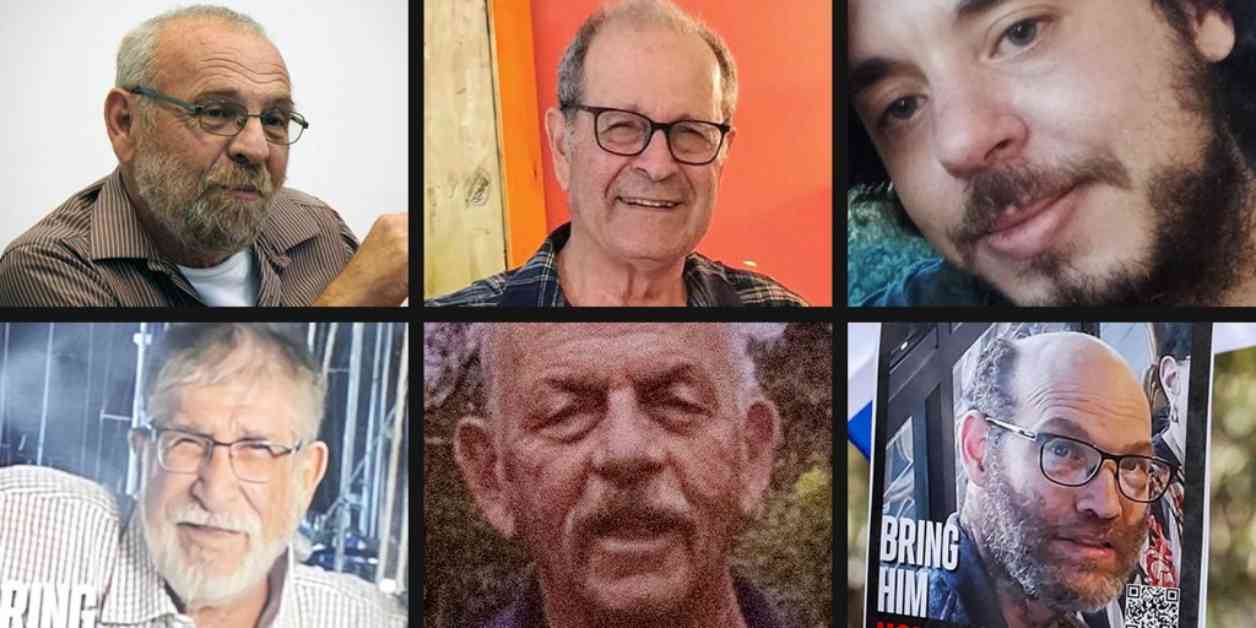The Israeli military announced on Tuesday that it had successfully recovered the bodies of six hostages who were taken into Gaza following the Hamas-led terror attacks on October 7. This operation took place in the city of Khan Younis in southern Gaza, where troops were able to locate and retrieve the remains of the hostages. Among those identified were Haim Perry, 80; Yoram Metzger, 80; Avraham Munder, 79; Alexander Dancyg, 76; Nadav Popplewell, 51; and Yagev Buchshtav, 35.
Efforts to retrieve the hostages were part of a broader push for a cease-fire deal in Gaza, with the United States, Egypt, and Qatar playing key roles in negotiations. Secretary of State Antony Blinken expressed optimism following a meeting with Israeli Prime Minister Benjamin Netanyahu, stating that Netanyahu had accepted a bridging proposal for a cease-fire. Blinken emphasized the importance of Hamas also agreeing to the deal for progress to be made.
The recovery of the hostages’ bodies brought some closure to their families, many of whom had been waiting anxiously for news since the hostages were taken captive. The Israeli Ministry of Foreign Affairs had previously expressed concerns about the health of one of the hostages, Alexander Dancyg, who had a history of heart issues. Dancyg, a 75-year-old Holocaust educator, had been taken hostage along with family members who were later released in a November cease-fire.
Despite the recovery of these six hostages, more than 100 individuals still remain held in Gaza, with a significant number believed to be deceased. The Israeli government has vowed to continue efforts to bring back all hostages, both living and deceased. Prime Minister Netanyahu expressed condolences to the families of the recovered hostages and reiterated Israel’s commitment to their safe return.
The recovery operation was commended by Israeli Defense Minister Yoav Gallant, who praised the troops for their success in navigating Hamas’ extensive tunnel network. The operation was carried out without any reported casualties among either Israelis or Palestinians. However, the toll of the conflict in Gaza continues to rise, with thousands of lives lost and many more injured since the start of Israel’s offensive.
International Efforts for Cease-Fire
The international community has been actively involved in efforts to broker a cease-fire deal between Israel and Hamas. The United States, Egypt, and Qatar have been working together to facilitate negotiations and bring an end to the violence in Gaza. Secretary of State Blinken’s visit to Cairo marked a significant step in the diplomatic process, with hopes of reaching a resolution that would benefit all parties involved.
The cease-fire negotiations have been complex, with both sides facing pressure to make concessions and compromises. The uncertainty surrounding the fate of the hostages has added urgency to the talks, as families await news of their loved ones and demand action from their respective governments. The recovery of the six hostages’ bodies serves as a somber reminder of the human cost of the conflict and the need for swift resolution.
Challenges and Controversies
The conflict between Israel and Hamas has been marked by challenges and controversies that have hindered efforts to reach a lasting peace agreement. Accusations of genocidal acts and human rights abuses have been leveled against Israel, while Hamas has faced criticism for its militant tactics and disregard for civilian lives. The international community has called for accountability and justice on both sides, urging a resolution that prioritizes the well-being of all individuals affected by the conflict.
The recent strikes on Hamas targets in Gaza have sparked international outrage, particularly when civilian casualties are involved. The Israeli military has defended its actions as necessary for national security, citing the presence of Hamas operatives in civilian areas as a justification for targeted strikes. However, the loss of innocent lives, including children, has raised concerns about the proportionality and ethics of such military operations.
Humanitarian Crisis in Gaza
The ongoing conflict in Gaza has exacerbated an already dire humanitarian situation, with thousands of residents facing shortages of food, water, and medical supplies. The destruction of infrastructure and homes has displaced many families, leaving them vulnerable and in need of assistance. Humanitarian organizations have been working tirelessly to provide aid and support to those affected by the conflict, but the scale of the crisis poses significant challenges.
The international community has a responsibility to address the humanitarian needs of the people of Gaza and ensure that they receive the assistance they require to rebuild their lives. Efforts to secure a cease-fire and end the violence are crucial steps towards alleviating the suffering of civilians caught in the crossfire. The recovery of the hostages’ bodies underscores the urgency of finding a peaceful resolution that respects the dignity and rights of all individuals involved.
In conclusion, the recovery of the six hostages’ bodies in Gaza marks a bittersweet moment in the ongoing conflict between Israel and Hamas. While it brings closure to their families and provides some answers, the larger issues at stake – including the humanitarian crisis, cease-fire negotiations, and accountability for past actions – remain unresolved. The international community must continue to push for a peaceful resolution that prioritizes the well-being of all individuals affected by the conflict and ensures a sustainable path towards lasting peace.



























